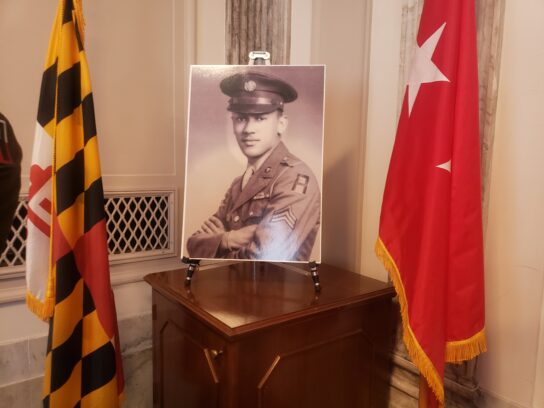
More than 80 years after Staff Sgt. Waverly Woodson Jr. ignored his own wounds and treated 200 soldiers who were wounded during the Battle of Normandy in World War II, his widow on Tuesday received the Distinguished Service Cross he was put up for decades ago.
Woodson, who lived and raised his family in Clarksburg, failed to receive the honor he deserved due to racism, explained U.S. Sen. Chris Van Hollen, who together with his staff spent nine years to get to this day.
“It was clear that at that time only one thing stood before Waverly Woodson and the recognition he deserved,” Van Hollen said, adding that the Woodson family’s final objection remains getting their hero the Medal of Honor, the nation’s highest military decoration.
At the end of World War II, 432 soldiers received the Distinguished Service Cross. “Not a single one was Black,” Van Hollen said during the ceremony in the Russell Senate Office Building in Washington, D.C.
“Righting this wrong matters,” he said. “We are a stronger, more united country, when we remember all of our history and we honor all of our history.”
“It’s been a long, long road,” Woodson’s son, Stephen, said of efforts to enable his father to receive the Distinguished Service Cross. “My father, if he could be here today, would be humbled.”
His father rarely spoke of his deeds during the war, but when the world celebrated the 50th anniversary, his “deep rooted” emotions poured out, Stephen Woodson recalled.
Woodson’s widow, Joann, 95, smiled broadly during the hour-long celebration and especially when Van Hollen handed her the award citation.
On June 6, 1944, Woodson lumbered from his landing craft and onto Omaha Beach despite receiving shrapnel wounds to his groin, inner thigh and back. He quickly set up a first aid station and spent the next 30 hours doing CPR, stopping bleeding, administering transfusions and even amputated a foot, all to save his fellow soldiers from the 320th Barrage Balloon Battalion, where he served as a medic.
Lt. General Mark Landes, commander of the First Army where Woodson served, praised Woodson for his honor and service.
He credited Captain Kevin Braafladt, an Army historian, for making the ceremony possible. Braafladt dedicated three-and-a-half years and sifted through 415 linear feet of Army records to learn the true bravery of Woodson, Landes said.
Also important in getting Woodson’s story out was Linda Hervieux, author of “Forgotten, The Untold Story of D-Day’s Black Heroes.” She spoke of the “systematic racism” that permeated the Army during World War II.
After returning to his battalion to serve in Korea, Woodson moved to Clarksburg and worked at the National Institutes of Health (NIH), where he oversaw the staffing and operation of surgical rooms.
One year ago, Woodson was awarded posthumously the Bronze Star and the Combat Medic Badge. During Tuesday’s ceremony, his Bronze Star was upgraded to a Distinguished Service Cross.
The actual medal the family received recently was placed in the sand where Woodson had saved so many lives by members of the First Army.
He died in 2005 and is buried in Arlington National Cemetery.
His widow, Joann, and grandson are visibly touched by all the good wishes they are receiving @mymcmedia @ChrisVanHollen pic.twitter.com/xhhi6lLVnu
— suzanne pollak (@SuzannePollak) September 24, 2024
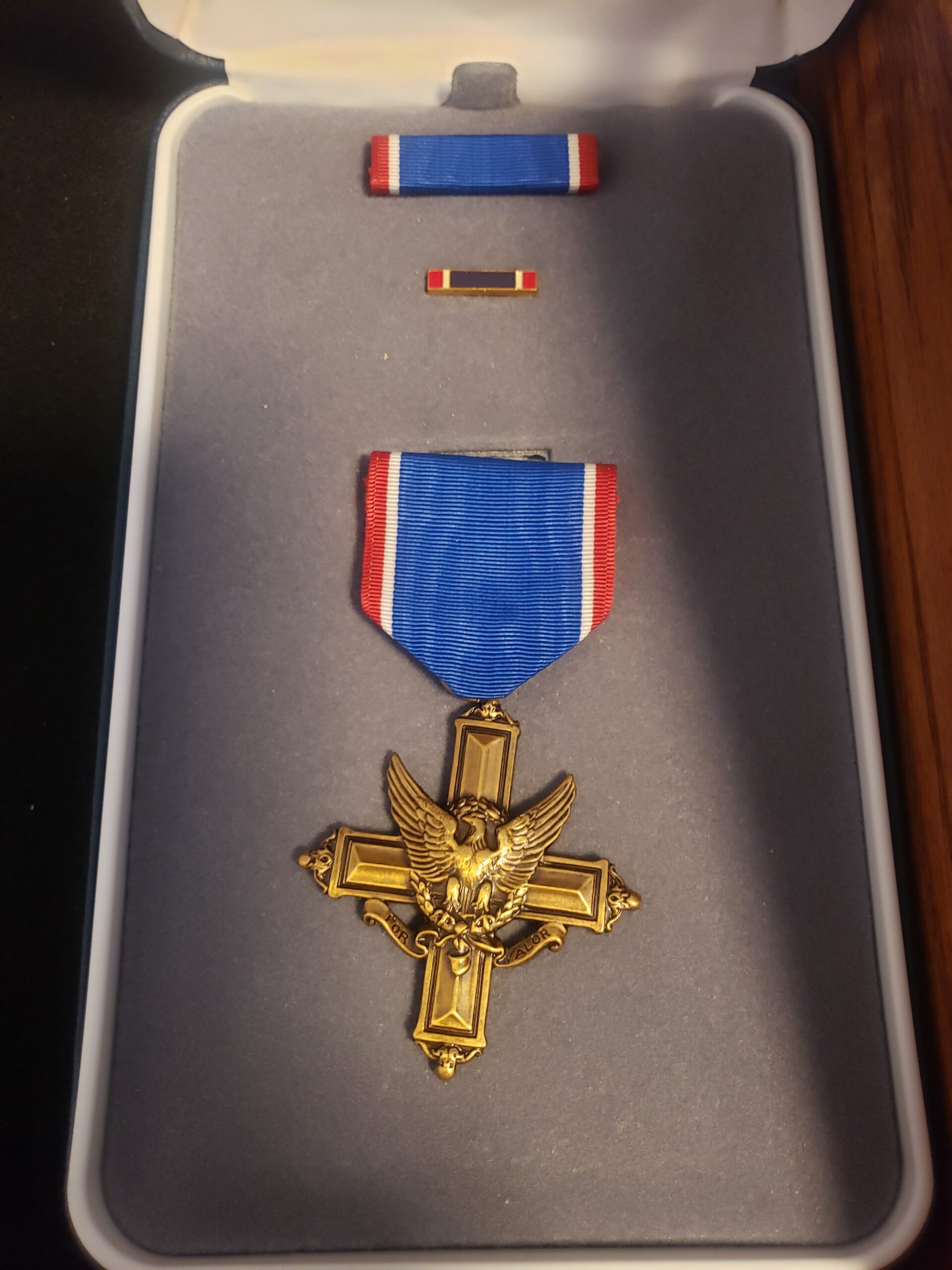
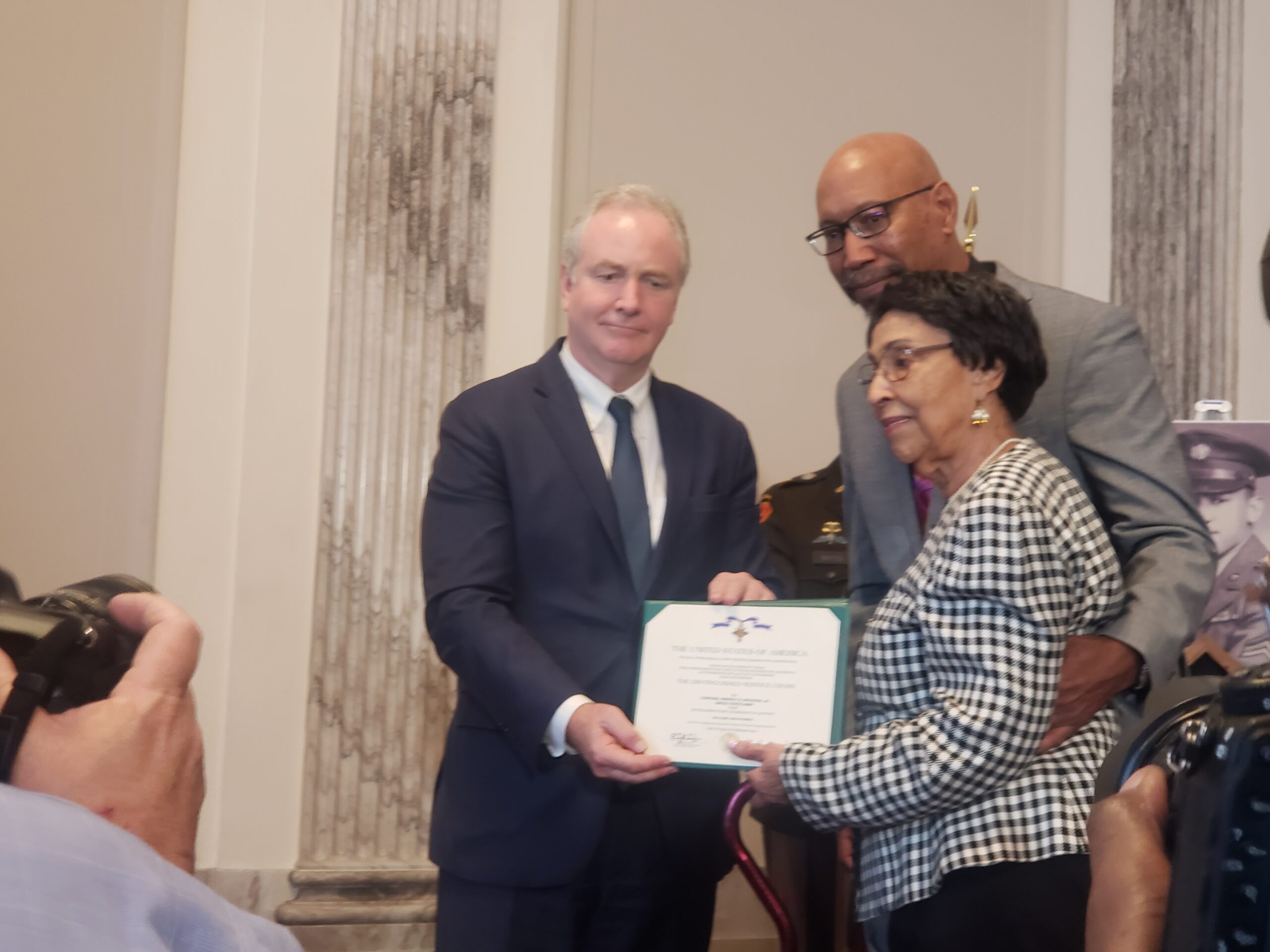
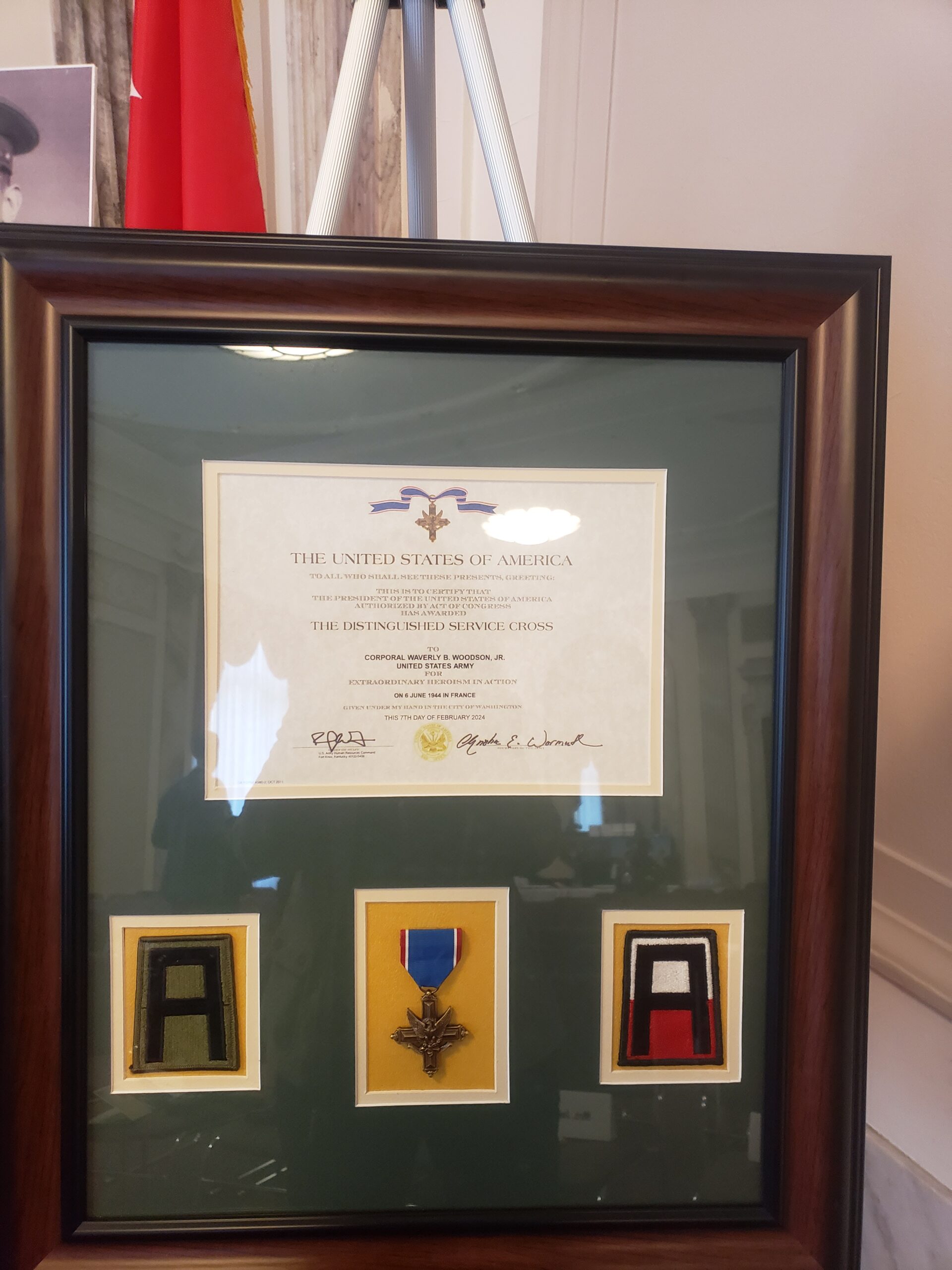
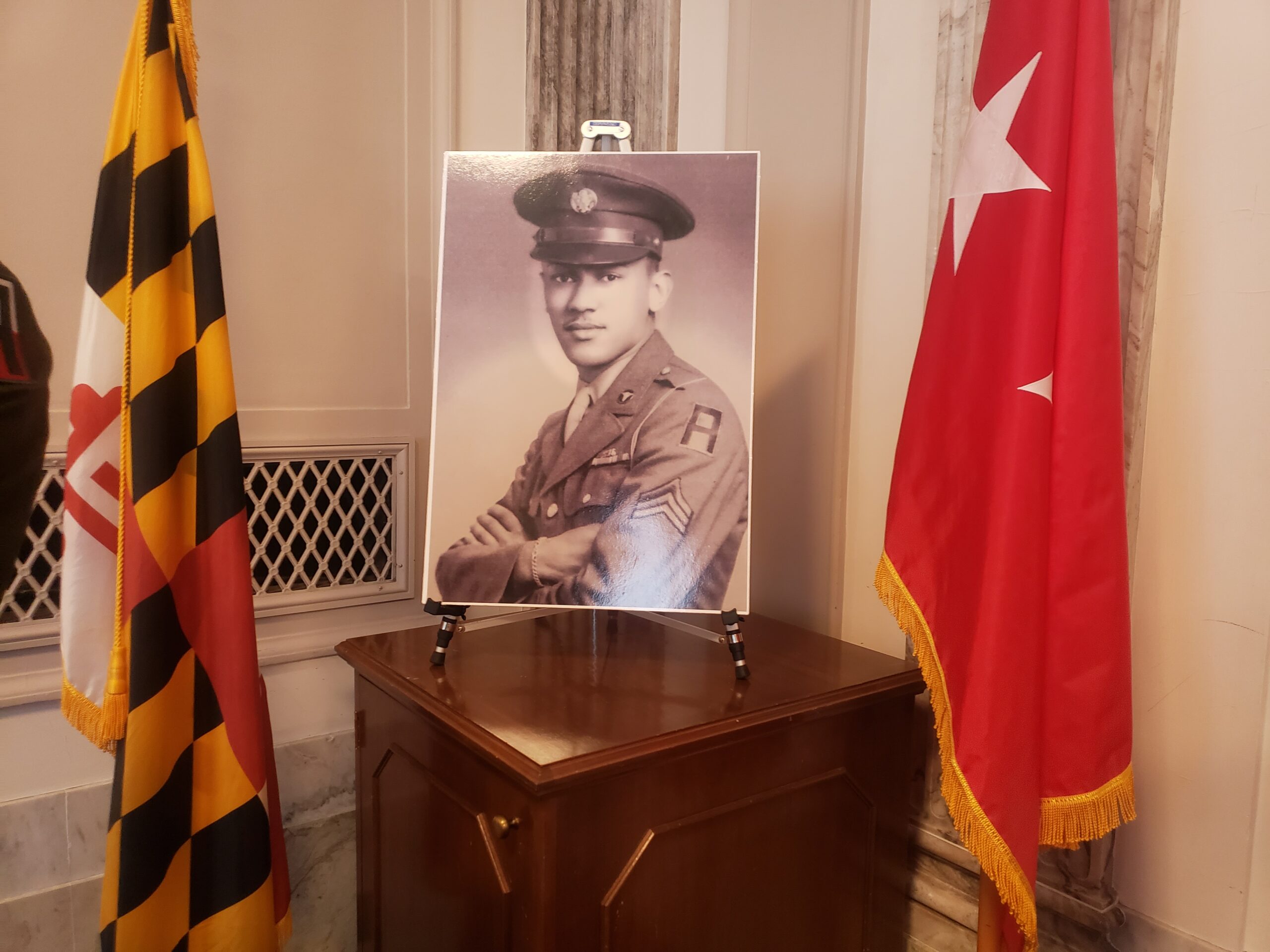


Comments are closed.